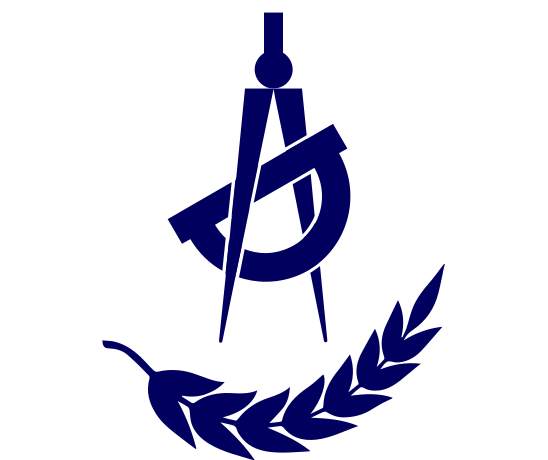
Yuri Leonidovich Ershov
Lobachevsky Medal and Prize
(awarded in 2023)
Lobachevsky Medal and Prize
(awarded in 2023)
Academician Yurii Leonidovich Ershov (born 1940) is a prominent scientist in the field of algebra and mathematical logic, who made a fundamental contribution to the development of this branch of mathematics.
Yu.L. Ershov's outstanding results in the description of elementary theories for various classes of groups, Boolean algebras, fields and other structures have received worldwide recognition. He found connections with the theory of profinite groups and the theory of valued fields. On this basis, he created powerful methods for proving the decidability of elementary theories of fields, which made it possible to find new classes of fields with decidable elementary theories based on model-theoretical methods.
Yu.L. Ershov and his disciples made a great contribution to the formation and modern development of the theory of constructive models. Recently, he has been conducting interesting research in the theory of admissible sets. Problems of constructivity of models in infinite cardinalities with respect to admissible fragments have been solved. Yu.L. Ershov made a major contribution to the theory of denotational semantics of programs, where he constructed and studied topological A-spaces with a more natural structure.
The N.I. Lobachevsky Medal was awarded to Yurii Leonidovich Ershov for a series of works on the development of topology for discrete mathematics, for the monograph "Topology for discrete mathematics".
Yu.L. Ershov's outstanding results in the description of elementary theories for various classes of groups, Boolean algebras, fields and other structures have received worldwide recognition. He found connections with the theory of profinite groups and the theory of valued fields. On this basis, he created powerful methods for proving the decidability of elementary theories of fields, which made it possible to find new classes of fields with decidable elementary theories based on model-theoretical methods.
Yu.L. Ershov and his disciples made a great contribution to the formation and modern development of the theory of constructive models. Recently, he has been conducting interesting research in the theory of admissible sets. Problems of constructivity of models in infinite cardinalities with respect to admissible fragments have been solved. Yu.L. Ershov made a major contribution to the theory of denotational semantics of programs, where he constructed and studied topological A-spaces with a more natural structure.
The N.I. Lobachevsky Medal was awarded to Yurii Leonidovich Ershov for a series of works on the development of topology for discrete mathematics, for the monograph "Topology for discrete mathematics".

Idzhad Khakovich Sabitov
Lobachevsky Medal and Prize
(awarded in 2021)
Lobachevsky Medal and Prize
(awarded in 2021)
Sabitov Idzhad Khakovich (born 1937) is a doctor of physical and mathematical sciences (1997), currently he is a professor of the faculty of mechanics and mathematics of Moscow State University, where he has been working since 1964.
The first scientific works were devoted to boundary value problems of the theory of functions of a complex variable. He proposed a new approach to the Markushevich boundary value problem (a generalization of the Riemann boundary value problem), which allowed solving previously "impossible" cases. Later, the leading topic of I. Kh. Sabitov's scientific research became questions of the metric theory of surfaces and polyhedra in those formulations that were previously most often called the subject of "geometry in large", namely, questions of isometric immersions of Riemannian and polyhedral metrics, bending and infinitesimal bending of surfaces. The main results in this area are related to questions of smoothness, in particular, he obtained unimprovable forms of theorems on the smoothness of a convex surface with a smooth metric and gave necessary and sufficient conditions for the nonrigidity of various types of surfaces of revolution in a given class of smoothness of the surface and its deformations.
In 1997, following the results of the International Lobachevsky Competition scientific results of I. Kh. Sabitov were awarded by the Council of Kazan University with an Honorary review "For outstanding work in geometry".
The N.I. Lobachevsky Medal was awarded to Idzhad Khakovich Sabitov in 2021 for his work on the metric properties of surfaces and polyhedra.
The first scientific works were devoted to boundary value problems of the theory of functions of a complex variable. He proposed a new approach to the Markushevich boundary value problem (a generalization of the Riemann boundary value problem), which allowed solving previously "impossible" cases. Later, the leading topic of I. Kh. Sabitov's scientific research became questions of the metric theory of surfaces and polyhedra in those formulations that were previously most often called the subject of "geometry in large", namely, questions of isometric immersions of Riemannian and polyhedral metrics, bending and infinitesimal bending of surfaces. The main results in this area are related to questions of smoothness, in particular, he obtained unimprovable forms of theorems on the smoothness of a convex surface with a smooth metric and gave necessary and sufficient conditions for the nonrigidity of various types of surfaces of revolution in a given class of smoothness of the surface and its deformations.
In 1997, following the results of the International Lobachevsky Competition scientific results of I. Kh. Sabitov were awarded by the Council of Kazan University with an Honorary review "For outstanding work in geometry".
The N.I. Lobachevsky Medal was awarded to Idzhad Khakovich Sabitov in 2021 for his work on the metric properties of surfaces and polyhedra.

Daniel T. Wise
Lobachevsky Medal and Prize
(awarded in 2019)
Lobachevsky Medal and Prize
(awarded in 2019)
Daniel T. Wise (born 1971) is an American mathematician, currently professor of mathematics at McGill University, Montreal, Canada. Daniel Wise was nominated for the Lobachevsky Medal by Mikhail Gromov, an outstanding modern geometer, winner of the Abel Prize and the Lobachevsky Prize (1997), and professor at the Courant Institute of Mathematics at New York University. He is one of five permanent professors at the Institute of Higher Scientific Studies in France.
The N.I. Lobachevsky Medal was awarded to Daniel Weiss for his outstanding achievement – the proof of the famous Virtually Haken conjecture, which is related to geometric group theory and provides a program for using cubic complexes to study a series of infinite groups. According to Mikhail Gromov, the work of Daniel Weiss, as well as the methods he developed, "constitute the most significant contribution to Lobachevsky geometry and geometric group theory in the last 30-40 years."
The N.I. Lobachevsky Medal was awarded to Daniel Weiss for his outstanding achievement – the proof of the famous Virtually Haken conjecture, which is related to geometric group theory and provides a program for using cubic complexes to study a series of infinite groups. According to Mikhail Gromov, the work of Daniel Weiss, as well as the methods he developed, "constitute the most significant contribution to Lobachevsky geometry and geometric group theory in the last 30-40 years."

Richard Melvin Schoen
Lobachevsky Medal and Prize
(awarded in 2017)
Lobachevsky Medal and Prize
(awarded in 2017)
Richard Melvin Schoen (born 1950) is an American mathematician and expert in differential geometry.
Schoen received his higher education at the University of Dayton, he graduated with a bachelor's degree in 1972 with an award for special achievements and enrolled in graduate school at Stanford University the same year. During his studies from 1972 to 1975, he was awarded a National Science Foundation fellowship to fund his research. He is currently a professor at the University of California, Irvine.
The N.I. Lobachevsky Medal and Prize was awarded to Richard Melvin Schoen in 2017 for solving the famous Yamabe problem on compact manifolds and for fundamental contributions to the theory of regularity of minimal surfaces and harmonic mappings.
Schoen received his higher education at the University of Dayton, he graduated with a bachelor's degree in 1972 with an award for special achievements and enrolled in graduate school at Stanford University the same year. During his studies from 1972 to 1975, he was awarded a National Science Foundation fellowship to fund his research. He is currently a professor at the University of California, Irvine.
The N.I. Lobachevsky Medal and Prize was awarded to Richard Melvin Schoen in 2017 for solving the famous Yamabe problem on compact manifolds and for fundamental contributions to the theory of regularity of minimal surfaces and harmonic mappings.

Shiing-Shen Chern
Lobachevsky Medal
(awarded in 2002)
Lobachevsky Medal
(awarded in 2002)
Shiing-Shen Chern (1911−2004) was a Chinese and American mathematician, one of the leadingexperts of 20th-century in differential geometry and topology.
In 1926-1930, he studied at Nankai University (Tianjin), then worked on his dissertation at Tsinghua University (Beijing). At the invitation of Wilhelm Blaschke, he moved to Hamburg (1932), where he defended his doctoral dissertation (1936). He interned with Elie Cartan in Paris (1936−1937). He was a member of the US National Academy of Sciences, a foreign member of the Royal Society of London, the French Academy of Sciences, the Chinese Academy of Sciences, and the Russian Academy of Sciences.
The N. I. Lobachevsky Medal was awarded in 2002 for a series of works on differential and algebraic geometry that played a significant role in the development of geometry in the 20th century.
In 1926-1930, he studied at Nankai University (Tianjin), then worked on his dissertation at Tsinghua University (Beijing). At the invitation of Wilhelm Blaschke, he moved to Hamburg (1932), where he defended his doctoral dissertation (1936). He interned with Elie Cartan in Paris (1936−1937). He was a member of the US National Academy of Sciences, a foreign member of the Royal Society of London, the French Academy of Sciences, the Chinese Academy of Sciences, and the Russian Academy of Sciences.
The N. I. Lobachevsky Medal was awarded in 2002 for a series of works on differential and algebraic geometry that played a significant role in the development of geometry in the 20th century.

Yurii Grigorievich Reshetnyak
Lobachevsky Prize
(awarded in 2000)
Lobachevsky Prize
(awarded in 2000)
Reshetnyak Yurii Grigorievich (1929−2021) was a Soviet and Russian mathematician, doctor of physical and mathematical dciences, Academician of the Russian Academy of Sciences (since 1987). He graduated from the faculty of mathematics and mechanics of Leningrad University and wrote his candidate dissertation under the scientific supervision of A. D. Alexandrov. Since 1957, he worked at the Institute of Mathematics of the Siberian Branch of the Academy of Sciences and at Novosibirsk State University.
The works of Yu. G. Reshetnyak laid the foundations of the theory of spatial mappings with bounded distortion (quasi-regular mappings), and achieved significant advances in the theory of functions with generalized derivatives. Reshetnyak's theorem on isothermal coordinates on two-dimensional manifolds of bounded curvature, introduced by A. D. Aleksandrov, is well known, as are theorems on the weak convergence of Jacobians and on the lower semi-continuity of functionals of calculus of variations. Yu. G. Reshetnyak is credited with the final solution of M. A. Lavrentiev's problem on the stability of conformal mappings.
The International N. I. Lobachevsky Prize of the Russian Academy of Sciences was awarded in 2000 for the series of works “Analytical studies of two-dimensional manifolds of bounded curvature”.
The works of Yu. G. Reshetnyak laid the foundations of the theory of spatial mappings with bounded distortion (quasi-regular mappings), and achieved significant advances in the theory of functions with generalized derivatives. Reshetnyak's theorem on isothermal coordinates on two-dimensional manifolds of bounded curvature, introduced by A. D. Aleksandrov, is well known, as are theorems on the weak convergence of Jacobians and on the lower semi-continuity of functionals of calculus of variations. Yu. G. Reshetnyak is credited with the final solution of M. A. Lavrentiev's problem on the stability of conformal mappings.
The International N. I. Lobachevsky Prize of the Russian Academy of Sciences was awarded in 2000 for the series of works “Analytical studies of two-dimensional manifolds of bounded curvature”.

Mikhail Leonidovich Gromov
Lobachevsky Medal
(awarded in 1997)
Lobachevsky Medal
(awarded in 1997)
Mikhail Leonidovich Gromov (born 1943) is a Soviet and French mathematician. He graduated from Leningrad University (1965), where he defended his candidate (1969) and doctoral (1973) dissertations. His supervisor was V. A. Rokhlin. From 1967, he worked at the university as an assistant, then as an associate professor. In 1974, he left the Soviet Union. He was a professor at the State University of New York at Stony Brook, the University of Paris (Pierre and Marie Curie University), and the University of Maryland at College Park. Since 1996, he has been a professor at the Courant Institute of Mathematical Sciences at New York University. He is one of five permanent professors at the Institute of Higher Scientific Studies in France.
M. L. Gromov made a huge contribution to the development of metric geometry, symplectic geometry, Riemannian geometry, and geometric group theory. His research in the theory of hyperbolic groups, as well as his work related to the h-principle, had a great influence on many areas of mathematics.
The N. I. Lobachevsky Medal was awarded in 1997 for a series of works on geometry and topology devoted to the theory of immersions for various classes of spaces and the theory of hyperbolic groups.
M. L. Gromov made a huge contribution to the development of metric geometry, symplectic geometry, Riemannian geometry, and geometric group theory. His research in the theory of hyperbolic groups, as well as his work related to the h-principle, had a great influence on many areas of mathematics.
The N. I. Lobachevsky Medal was awarded in 1997 for a series of works on geometry and topology devoted to the theory of immersions for various classes of spaces and the theory of hyperbolic groups.

Boris Petrovich Komrakov
Lobachevsky Medal
(awarded in 1997)
Lobachevsky Medal
(awarded in 1997)
Komrakov Boris Petrovich (1948) is a Soviet and Russian mathematician, expert in the theory of Lie groups and the theory of homogeneous spaces. He graduated from the faculty of mechanics and mathematics of Belarusian State University in 1971, became doctor of physical and mathematical sciences in 1991, and Professor in 1994.
There are known problems posed by E. Cartan: to describe all invariant structures on a given homogeneous space, to classify homogeneous spaces that admit a given invariant structure. The first of them was solved by B. P. Komrakov completely, the solution of the second problem was given by him in the class of homogeneous spaces of semisimple Lie groups and classical structures.
The works of B. P. Komrakov are also devoted to the description of maximal non-discrete subgroups of Lie groups, in other words, to the problem of describing primitive actions. The problem was posed by Sophus Lie and solved by him in dimensions 1, 2 and 3. Significant partial results on this problem were obtained by E. Cartan, V. V. Morozov, A. I. Mal'tsev, E. B. Dynkin, F. I. Karpelevich and others. B. P. Komrakov obtained a complete solution to the problem.
The N. I. Lobachevsky Medal was awarded in 1997 for research on Lie theory and the geometry of homogeneous spaces, reflected in the monographs “Structures on manifolds and homogeneous spaces” and “Primitive actions and the Sophus Lie Problem”.
There are known problems posed by E. Cartan: to describe all invariant structures on a given homogeneous space, to classify homogeneous spaces that admit a given invariant structure. The first of them was solved by B. P. Komrakov completely, the solution of the second problem was given by him in the class of homogeneous spaces of semisimple Lie groups and classical structures.
The works of B. P. Komrakov are also devoted to the description of maximal non-discrete subgroups of Lie groups, in other words, to the problem of describing primitive actions. The problem was posed by Sophus Lie and solved by him in dimensions 1, 2 and 3. Significant partial results on this problem were obtained by E. Cartan, V. V. Morozov, A. I. Mal'tsev, E. B. Dynkin, F. I. Karpelevich and others. B. P. Komrakov obtained a complete solution to the problem.
The N. I. Lobachevsky Medal was awarded in 1997 for research on Lie theory and the geometry of homogeneous spaces, reflected in the monographs “Structures on manifolds and homogeneous spaces” and “Primitive actions and the Sophus Lie Problem”.

Grigory Alexandrovich Margulis
Lobachevsky Prize
(awarded in 1996)
Lobachevsky Prize
(awarded in 1996)
Margulis Grigory Alexandrovich (born 1946) is a Russian and American mathematician, doctor of physical and mathematical sciences, researcher at the Institute of Information Transmission Problems of the Russian Academy of Sciences, professor at Yale University. Graduated from the faculty of mechanics and mathematics of Moscow University (1967). Under the guidance of Y. G. Sinai, he defended his candidate dissertation on ergodic theory. Later, his interests shifted to the field of Lie group theory (the theory of lattices in semisimple Lie groups), which he was able to apply in ergodic theory, representation theory, number theory, combinatorics and measure theory.
The N.I. Lobachevsky International Prize of the Russian Academy of Sciences was awarded in 1996 for the series of works "Arithmeticity of discrete subgroups of Lie groups".
The N.I. Lobachevsky International Prize of the Russian Academy of Sciences was awarded in 1996 for the series of works "Arithmeticity of discrete subgroups of Lie groups".

Alexandr Petrovich Norden
Lobachevsky Medal
(awarded in 1992)
Lobachevsky Medal
(awarded in 1992)
Alexandr Petrovich Norden (1904-1993) is a Soviet mathematician. He graduated from the mathematics department of Moscow University in 1930 and defended his doctoral dissertation on the topic "On the internal geometries of surfaces of projective space" in 1937.
A.P. Norden did much to develop and popularize the ideas of N.I. Lobachevsky, and was a member of the editorial board for the publication of his complete works. From 1950, he headed the work of the Kazan Physics and Mathematics Society.
A.P. Norden's scientific achievements cover broad areas of geometry. He proposed a universal method for constructing connections on surfaces of projective space, which went down in the history of mathematics as the Norden normalization method. Alexandr Petrovich extended this method to multidimensional spaces and applied it in linear and conformal geometries and in the geometries of subgroups of projective groups. He made a significant contribution to the study of biaxial and biplanar spaces with structures of binary algebras, as well as their various generalizations, in particular, leading to Kahler spaces. The use of commutative associative algebras by A.P. Norden and his disciples in the geometry of generalized spaces and differentiable manifolds led to the emergence of a new scientific direction - the theory of manifolds over algebras.
The N.I. Lobachevsky Medal was awarded in 1992 for the invention of the normalization method and work on the theory of non-Euclidean spaces.
A.P. Norden did much to develop and popularize the ideas of N.I. Lobachevsky, and was a member of the editorial board for the publication of his complete works. From 1950, he headed the work of the Kazan Physics and Mathematics Society.
A.P. Norden's scientific achievements cover broad areas of geometry. He proposed a universal method for constructing connections on surfaces of projective space, which went down in the history of mathematics as the Norden normalization method. Alexandr Petrovich extended this method to multidimensional spaces and applied it in linear and conformal geometries and in the geometries of subgroups of projective groups. He made a significant contribution to the study of biaxial and biplanar spaces with structures of binary algebras, as well as their various generalizations, in particular, leading to Kahler spaces. The use of commutative associative algebras by A.P. Norden and his disciples in the geometry of generalized spaces and differentiable manifolds led to the emergence of a new scientific direction - the theory of manifolds over algebras.
The N.I. Lobachevsky Medal was awarded in 1992 for the invention of the normalization method and work on the theory of non-Euclidean spaces.

Vladimir Igorevich Arnold
Lobachevsky Prize
(awarded in 1992)
Vladimir Igorevich Arnold (1937−2010) was a Soviet and Russian mathematician, author of works in the field of topology, theory of differential equations, theory of singularities of smooth mappings and theoretical mechanics. He graduated from the Mechanics and Mathematics Faculty of Moscow State University (1959). After defending his doctoral dissertation (1963), he worked at Moscow State University until 1987 (as a professor since 1965), from 1986 until his last days he worked at the Steklov Mathematical Institute. He has been an academician of the USSR Academy of Sciences (since 1990).
While still a student, V. I. Arnold solved, together with his teacher A. N. Kolmogorov, Hilbert's 13th problem. He was one of the creators of the famous KAM (Kolmogorov-Arnold-Moser) theory. The works of Arnold and his students began a new stage in the development of bifurcation theory, which continues to this day.
Arnold's research greatly advanced the solution of Hilbert's 16th problem and led to the creation of real algebraic geometry. He was one of the creators of symplectic geometry, which is a fusion of geometry and Hamiltonian mechanics.
The Lobachevsky International Prize of the Russian Academy of Sciences was awarded in 1992 for the work "Normal Forms of Functions Near Degenerate Critical Points, Weyl Groups Ak, Dk, Ek, and Lagrangian Singularities."
While still a student, V. I. Arnold solved, together with his teacher A. N. Kolmogorov, Hilbert's 13th problem. He was one of the creators of the famous KAM (Kolmogorov-Arnold-Moser) theory. The works of Arnold and his students began a new stage in the development of bifurcation theory, which continues to this day.
Arnold's research greatly advanced the solution of Hilbert's 16th problem and led to the creation of real algebraic geometry. He was one of the creators of symplectic geometry, which is a fusion of geometry and Hamiltonian mechanics.
The Lobachevsky International Prize of the Russian Academy of Sciences was awarded in 1992 for the work "Normal Forms of Functions Near Degenerate Critical Points, Weyl Groups Ak, Dk, Ek, and Lagrangian Singularities."

Hirzebruch Friedrich
Lobachevsky Prize
(awarded in 1989)Hirzebruch Friedrich (German: Friedrich Ernst Peter Hirzebruch; 1927−2012) was a German mathematician. He is the author of a deep generalization of the classical Riemann–Roch theorem to multidimensional algebraic varieties (Riemann–Roch–Hirzebruch theorem, 1956). Hirzebruch's theorem allows one to calculate, under certain conditions, the dimension of the space of meromorphic functions with given singularities on a nonsingular projective algebraic variety and the dimension of the space of holomorphic sections of a complex-analytic vector bundle. The fundamental significance of F. Hirzebruch's results is that they connect topology, algebraic geometry, differential geometry and number theory. The pioneering ideas of F. Hirzebruch, presented in his monograph "Topological Methods in Algebraic Geometry" (1956), had a huge influence on the development of a number of other areas of mathematics, including the global theory of Atiyah-Singer elliptic operators and K-theory.
The International N. I. Lobachevsky Prize was awarded in 1989 for the monograph "Topological Methods in Algebraic Geometry".
The International N. I. Lobachevsky Prize was awarded in 1989 for the monograph "Topological Methods in Algebraic Geometry".

Andrey Nikolaevich Kolmogorov
Lobachevsky Prize
(awarded in 1986)
Kolmogorov Andrey Nikolaevich (1903−1987) was a Soviet mathematician. He was born in Tambov. He graduated from Moscow University (1925). In 1922, he constructed a Fourier series that diverges almost everywhere, which brought him worldwide fame. In 1931, he became a professor at Moscow State University. Academician of the USSR Academy of Sciences since 1939. In 1933, he was appointed director of the Institute of Mathematics and Mechanics at Moscow State University. In 1935, he founded the Department of Probability Theory at the Faculty of Mechanics and Mathematics (which he headed until 1966); in 1960, he created the Laboratory of Probability and Statistical Methods (and headed it from 1966 to 1976); in 1976, the Department of Mathematical Statistics was opened, which A. N. Kolmogorov headed until 1979. From 1980 until the end of his life, Andrei Nikolaevich headed the Department of Mathematical Logic.
A number of Kolmogorov's greatest creative achievements date back to the twenties. These include the creation of a general theory of operations on sets; research in the field of trigonometric series; works on mathematical logic (in which intuitionistic logic first became the subject of mathematical study); the beginning of work on the substantiation of probability theory, i.e., on turning it into a rigorous and systematic mathematical discipline. In 1931, his fundamental article "On Analytical Methods in Probability Theory" was published, and in 1933, the monograph "Basic Concepts of Probability Theory" was published. After that the construction of probability theory as a holistic mathematical theory was completed.
A. N. Kolmogorov made a significant contribution to the development of algebraic topology (he introduced one of the central concepts of this theory - the concept of cohomology), the theory of dynamical systems (he introduced a new invariant "entropy"), the theory of complexity of constructive objects, where the ideas he proposed for measuring the complexity of an object found diverse applications in information theory, probability theory, and the theory of algorithms.
The International N. I. Lobachevsky Prize was awarded in 1986 for the series of works "Fundamentals of Cohomology Theory".
A number of Kolmogorov's greatest creative achievements date back to the twenties. These include the creation of a general theory of operations on sets; research in the field of trigonometric series; works on mathematical logic (in which intuitionistic logic first became the subject of mathematical study); the beginning of work on the substantiation of probability theory, i.e., on turning it into a rigorous and systematic mathematical discipline. In 1931, his fundamental article "On Analytical Methods in Probability Theory" was published, and in 1933, the monograph "Basic Concepts of Probability Theory" was published. After that the construction of probability theory as a holistic mathematical theory was completed.
A. N. Kolmogorov made a significant contribution to the development of algebraic topology (he introduced one of the central concepts of this theory - the concept of cohomology), the theory of dynamical systems (he introduced a new invariant "entropy"), the theory of complexity of constructive objects, where the ideas he proposed for measuring the complexity of an object found diverse applications in information theory, probability theory, and the theory of algorithms.
The International N. I. Lobachevsky Prize was awarded in 1986 for the series of works "Fundamentals of Cohomology Theory".

Herbert Busemann
Lobachevsky Prize
(awarded in 1983)
Busemann Herbert (German: Herbert Busemann; 1905−1994) was a German and American mathematician. He was born in Berlin. He defended his dissertation at the University of Göttingen under the supervision of Richard Courant (1931). He worked in Göttingen as an assistant until 1933, then at the University of Copenhagen until 1936, after which he moved to the United States. Professor at the University of Southern California (1947−1970).
Busemann's works relate to various sections of geometry, especially to convex and differential geometry. In geometry, the Busemann function and Busemann space are well known.
G. Busemann is the author of six monographs, three of which have been translated into Russian. He could read and speak French, German, Spanish, Italian, Russian and Danish. He could read Arabic, Latin, Greek and Swedish. He translated a number of articles and monographs into English, the most significant of which were in Russian, which at that time was not very accessible to English-speaking scientists.
The N. I. Lobachevsky International Prize of the USSR Academy of Sciences was awarded in 1983 for the monograph "Geometry of Geodesics".
Busemann's works relate to various sections of geometry, especially to convex and differential geometry. In geometry, the Busemann function and Busemann space are well known.
G. Busemann is the author of six monographs, three of which have been translated into Russian. He could read and speak French, German, Spanish, Italian, Russian and Danish. He could read Arabic, Latin, Greek and Swedish. He translated a number of articles and monographs into English, the most significant of which were in Russian, which at that time was not very accessible to English-speaking scientists.
The N. I. Lobachevsky International Prize of the USSR Academy of Sciences was awarded in 1983 for the monograph "Geometry of Geodesics".

Sergei Petrovich Novikov
Lobachevsky Prize
(awarded in 1980)
Novikov Sergei Petrovich (1938) was a Soviet and Russian mathematician. He was born in Gorky (Nizhny Novgorod). Graduated from Moscow University (1960). He has been working at the Mathematical Institute of the Russian Academy of Sciences (since 1963), and is a professor at Moscow University (since 1967). He is a corresponding Member of the USSR Academy of Sciences (since 1966), Academician of the USSR Academy of Sciences (since 1981).
His main research relates to geometry and topology. A number of works are devoted to issues of algebra and relativity theory. He proved the topological invariance of Pontryagin characteristic classes, created a qualitative theory of foliations and multivalued functions, a qualitative theory of cosmological models, and a theory of finite-zone solutions of nonlinear systems.
The International N. I. Lobachevsky Prize was awarded in 1980 for a series of works on foliation theory.
His main research relates to geometry and topology. A number of works are devoted to issues of algebra and relativity theory. He proved the topological invariance of Pontryagin characteristic classes, created a qualitative theory of foliations and multivalued functions, a qualitative theory of cosmological models, and a theory of finite-zone solutions of nonlinear systems.
The International N. I. Lobachevsky Prize was awarded in 1980 for a series of works on foliation theory.

Boris Nikolaevich Delone
Lobachevsky Prize
(awarded in 1977)
Delone Boris Nikolaevich (1890−1980) was a Soviet mathematician, Corresponding Member of the USSR Academy of Sciences (since 1929). He was born in St. Petersburg. He graduated from Kiev University (1913). He taught at Kiev University (1913−1916), Kiev Polytechnic Institute (1916−1922), Leningrad University (1922−1935, since 1926 — professor). From 1935 until the end of his life he worked in Moscow, at the Mathematical Institute of the USSR Academy of Sciences and, simultaneously, at Moscow University.
Main works are devoted to algebra, number theory, mathematical crystallography, history of mathematics. He investigated solutions of Diophantine equations of the third degree with two unknowns. He wrote a series of works on the geometrization of Galois theory. He developed theories of regular partitioning of space, reduction of quadratic forms, lattice coverings of space by spheres. A number of works relate to geometric crystallography. The International Prize named after N. I. Lobachevsky was awarded in 1977 for the series of works "Theory of Regular Partitions and Lattice Coverings".
Main works are devoted to algebra, number theory, mathematical crystallography, history of mathematics. He investigated solutions of Diophantine equations of the third degree with two unknowns. He wrote a series of works on the geometrization of Galois theory. He developed theories of regular partitioning of space, reduction of quadratic forms, lattice coverings of space by spheres. A number of works relate to geometric crystallography. The International Prize named after N. I. Lobachevsky was awarded in 1977 for the series of works "Theory of Regular Partitions and Lattice Coverings".

Pavel Sergeevich Aleksandrov
Lobachevsky Prize
(awarded in 1972)
Pavel Sergeevich Aleksandrov (1896−1982) was a Soviet mathematician, founder of the Soviet topological school, academician (since 1953, corresponding member of the USSR Academy of Sciences since 1929). He was born in Bogorodsk (now Noginsk, Moscow Region). Graduated from Moscow University in 1917. He was a student of N.N. Luzin. From 1921 he worked at Moscow State University.
Main research relates to topology. Together with P.S. Urysohn, he constructed the theory of compact and bicompact spaces and proved the first general metrization theorem. He developed the theory of dimension, giving it a new, geometric direction, in particular, he constructed the so-called homological theory of dimension. He synthesized the combinatorial and set-theoretic directions in topology. He developed methods for combinatorial (algebraic) study of sets and spaces of general nature, established a number of basic duality laws linking the topological properties of figures and sets with the topological properties of the complementary part of the space. He generalized Alexander's theorem to the case of any closed set (1927). He introduced a number of fundamental concepts in topology. A number of works are devoted to the theory of functions of a real variable, set theory, in which he obtained significant results, in particular, he proved the theorem on the cardinality of Borel sets (1915).
The International N. I. Lobachevsky Prize was awarded in 1972 for a series of works on the homological theory of dimension.
Main research relates to topology. Together with P.S. Urysohn, he constructed the theory of compact and bicompact spaces and proved the first general metrization theorem. He developed the theory of dimension, giving it a new, geometric direction, in particular, he constructed the so-called homological theory of dimension. He synthesized the combinatorial and set-theoretic directions in topology. He developed methods for combinatorial (algebraic) study of sets and spaces of general nature, established a number of basic duality laws linking the topological properties of figures and sets with the topological properties of the complementary part of the space. He generalized Alexander's theorem to the case of any closed set (1927). He introduced a number of fundamental concepts in topology. A number of works are devoted to the theory of functions of a real variable, set theory, in which he obtained significant results, in particular, he proved the theorem on the cardinality of Borel sets (1915).
The International N. I. Lobachevsky Prize was awarded in 1972 for a series of works on the homological theory of dimension.

Heinz Hopf
Lobachevsky Prize
(awarded in 1969)
Hopf Heinz (German: Heinz Hopf; 1894−1971) was a German mathematician. He was born in Breslau (now Wroclaw, Poland). He studied at the universities of Breslau, Heidelberg, Berlin, Göttingen. He worked at the University of Berlin (1926−1931), spent an academic year at Princeton University (1927−1928), since 1931 he has been a professor at the Higher Technical School in Zurich, since 1965 he has been an emeritus professor.
His main works are devoted to topology, topological methods in differential geometry and group theory. He created a general theory of intersection of cycles in manifolds (jointly with S. Lefschetz). He is the author of the theorem on the algebraic number of fixed points in the mapping of a polyhedron onto itself. He proposed a homotopic classification of mappings of a polyhedron of arbitrary dimensions onto a sphere of the same dimensions. He discovered an infinite number of mutually non-homotopic mappings of a three-dimensional sphere into a two-dimensional sphere. He established a number of connections between topology and differential geometry. He studied homotopic and cohomological groups.
The International N. I. Lobachevsky Prize was awarded in 1969 for a series of works on differential geometry and homotopic topology.
His main works are devoted to topology, topological methods in differential geometry and group theory. He created a general theory of intersection of cycles in manifolds (jointly with S. Lefschetz). He is the author of the theorem on the algebraic number of fixed points in the mapping of a polyhedron onto itself. He proposed a homotopic classification of mappings of a polyhedron of arbitrary dimensions onto a sphere of the same dimensions. He discovered an infinite number of mutually non-homotopic mappings of a three-dimensional sphere into a two-dimensional sphere. He established a number of connections between topology and differential geometry. He studied homotopic and cohomological groups.
The International N. I. Lobachevsky Prize was awarded in 1969 for a series of works on differential geometry and homotopic topology.

Lev Semenovich Pontryagin
Lobachevsky Prize
(awarded in 1966)
Pontryagin Lev Semenovich (1908−1988) was a Soviet mathematician, academician (since 1958). He was born in Moscow. He graduated from Moscow University (1929). He was a student of P. S. Alexandrov. Since 1930 he worked at Moscow University (since 1935 — professor) and the Mathematical Institute of the USSR Academy of Sciences (since 1939).
Main works relate to the theory of differential equations, topology, oscillation theory, control theory, calculus of variations, algebra. Developing the Alexander duality law, he proved this law, which related the Betti groups of an arbitrary bounded closed set in Euclidean space with the Betti groups of the complement of this space (1932). He solved the problem of calculating Betti groups. In the field of topology and topological algebra, he constructed a theory of characters of commutative topological groups, theorems on the structure of fairly wide types of topological groups, and created a new direction in topological algebra. He proved the theorem that the only locally bicompact connected skew fields are the skew fields of real numbers, complex numbers, and quaternions. He obtained a number of results in homotopy theory (Pontryagin classes). He created a mathematical theory of optimal processes based on the so-called Pontryagin maximum principle. He has significant results in the asymptotics of relaxation oscillations, variational calculus, dimension theory, the theory of ordinary differential equations, and control theory.
The International N. I. Lobachevsky Prize was awarded in 1966 for a series of works on differentiable manifolds.
Main works relate to the theory of differential equations, topology, oscillation theory, control theory, calculus of variations, algebra. Developing the Alexander duality law, he proved this law, which related the Betti groups of an arbitrary bounded closed set in Euclidean space with the Betti groups of the complement of this space (1932). He solved the problem of calculating Betti groups. In the field of topology and topological algebra, he constructed a theory of characters of commutative topological groups, theorems on the structure of fairly wide types of topological groups, and created a new direction in topological algebra. He proved the theorem that the only locally bicompact connected skew fields are the skew fields of real numbers, complex numbers, and quaternions. He obtained a number of results in homotopy theory (Pontryagin classes). He created a mathematical theory of optimal processes based on the so-called Pontryagin maximum principle. He has significant results in the asymptotics of relaxation oscillations, variational calculus, dimension theory, the theory of ordinary differential equations, and control theory.
The International N. I. Lobachevsky Prize was awarded in 1966 for a series of works on differentiable manifolds.

Alexey Vasilyevich Pogorelov
Lobachevsky Prize
(awarded in 1959)
Pogorelov Alexey Vasilyevich (1919−2002) was a Soviet and Russian mathematician. He was born in Korocha (Belgorod region). He studied at the Mathematics department of Kharkov University, and at the beginning of the war he was sent to study at the N.E. Zhukovsky Air Force Engineering Academy. After graduating from the academy in 1945, he worked at the Central Aerohydrodynamic Institute and simultaneously studied in the correspondence graduate school at Moscow State University, specializing in geometry and topology.
His teachers were N.V. Efimov and A.D. Alexandrov. Having defended his candidate's dissertation, and a year later his doctoral dissertation, in 1947 Alexey Vasilyevich returned to Kharkov, where he soon became the head of the geometry department at the university. In 1960 he became an academician of the Academy of Sciences of the Ukrainian SSR and a corresponding member of the Academy of Sciences of the USSR. In the same year he moved to the newly created Physicotechnical Institute of the Academy of Sciences of the Ukrainian SSR, organizing the geometry department there, where he worked for 40 years. Since 2000 he lived in Moscow and worked at the Steklov Steklov Mathematical Institute. He has been an academician of the Academy of Sciences of the Ukrainian SSR (since 1961) and the Academy of Sciences of the USSR (since 1976).
His main works relate to geometry "in the large". He is the author of the final solution to the classical problem of unique definability of a convex surface by its intrinsic metric. He proved the external regularity of convex surfaces with regular intrinsic metric. He solved the Weyl problem on the isometric immersion "in the large" of a two-dimensional Riemannian manifold in a three-dimensional Riemannian space. He developed a nonlinear theory of elastic shells, solved the multidimensional Minkowski problem on the existence of a closed convex hypersurface whose Gaussian curvature is a given function of the outer normal. He solved Hilbert's fourth problem (1974). In Pogorelov's work, geometric methods are associated with analytical methods in the theory of partial differential equations. His works also had a significant influence on the theory of nonlinear differential equations.
The International N. I. Lobachevsky Prize was awarded in 1959 for his work "Some Questions of Geometry in the Large in Riemannian Space."
His teachers were N.V. Efimov and A.D. Alexandrov. Having defended his candidate's dissertation, and a year later his doctoral dissertation, in 1947 Alexey Vasilyevich returned to Kharkov, where he soon became the head of the geometry department at the university. In 1960 he became an academician of the Academy of Sciences of the Ukrainian SSR and a corresponding member of the Academy of Sciences of the USSR. In the same year he moved to the newly created Physicotechnical Institute of the Academy of Sciences of the Ukrainian SSR, organizing the geometry department there, where he worked for 40 years. Since 2000 he lived in Moscow and worked at the Steklov Steklov Mathematical Institute. He has been an academician of the Academy of Sciences of the Ukrainian SSR (since 1961) and the Academy of Sciences of the USSR (since 1976).
His main works relate to geometry "in the large". He is the author of the final solution to the classical problem of unique definability of a convex surface by its intrinsic metric. He proved the external regularity of convex surfaces with regular intrinsic metric. He solved the Weyl problem on the isometric immersion "in the large" of a two-dimensional Riemannian manifold in a three-dimensional Riemannian space. He developed a nonlinear theory of elastic shells, solved the multidimensional Minkowski problem on the existence of a closed convex hypersurface whose Gaussian curvature is a given function of the outer normal. He solved Hilbert's fourth problem (1974). In Pogorelov's work, geometric methods are associated with analytical methods in the theory of partial differential equations. His works also had a significant influence on the theory of nonlinear differential equations.
The International N. I. Lobachevsky Prize was awarded in 1959 for his work "Some Questions of Geometry in the Large in Riemannian Space."

Alexander Danilovich Alexandrov
Lobachevsky Prize
(awarded in 1951)
Lobachevsky Prize
(awarded in 1951)
Alexander Danilovich Alexandrov (1912−1999) was a Soviet mathematician and founder of the Soviet school of geometry “in the large,” an academician since 1964. He was born in the village of Volyn (now part of the Ryazan Oblast). Graduated from Leningrad University in 1933. Worked there from 1933 to 1964, serving as rector from 1952 to 1964. From 1964, he worked at the Siberian Branch of the USSR Academy of Sciences and Novosibirsk University, and from 1986 at the Leningrad Department of the V. A. Steklov Mathematical Institute.
His main works are devoted to geometry, partial differential equations, topology, variational calculus, history, and philosophy of mathematics. He constructed the intrinsic geometry of convex surfaces under the most general assumptions and obtained a number of important results for convex surfaces. Alexandrov’s primary research tool was the approximation of a general convex surface by convex polyhedra and the approximation of a convex metric by polyhedral metrics. He proposed methods for studying the metric properties of figures, giving rise to so-called irregular metric manifolds, more general than Riemannian spaces. These methods significantly expanded the field of geometric research and found applications in classical problems of differential geometry, theory of differential equations, and theory of elastic shells. Alexandrov also authored works on methods of teaching mathematics and popularization of science.
The International Lobachevsky Prize was awarded in 1951 for his work “Intrinsic Geometry of Convex Surfaces.”
His main works are devoted to geometry, partial differential equations, topology, variational calculus, history, and philosophy of mathematics. He constructed the intrinsic geometry of convex surfaces under the most general assumptions and obtained a number of important results for convex surfaces. Alexandrov’s primary research tool was the approximation of a general convex surface by convex polyhedra and the approximation of a convex metric by polyhedral metrics. He proposed methods for studying the metric properties of figures, giving rise to so-called irregular metric manifolds, more general than Riemannian spaces. These methods significantly expanded the field of geometric research and found applications in classical problems of differential geometry, theory of differential equations, and theory of elastic shells. Alexandrov also authored works on methods of teaching mathematics and popularization of science.
The International Lobachevsky Prize was awarded in 1951 for his work “Intrinsic Geometry of Convex Surfaces.”

Nicholas Vladimirovich Efimov
Lobachevsky Prize
(awarded in 1951)
Lobachevsky Prize
(awarded in 1951)
Efimov, Nicholas Vladimirovich (1910−1982), was a Soviet mathematician and corresponding member of the Academy of Sciences of the USSR (since 1979). He was born in Orenburg. Graduated from the North Caucasus University in 1932. Worked at Voronezh University (1934−1941), Voronezh Aviation Institute (1941−1943), Moscow Forestry Engineering Institute (1943−1955), and became a professor at Moscow University in 1946.
His main areas of work were geometry and applied mathematics. He investigated the bending of a surface patch near a “flattening point” (a point where the curvatures of all sections are zero). He showed that there exist analytic surfaces that are unbendable in an arbitrarily small neighborhood of such a point. Solved Hilbert’s generalized problem on surfaces of negative curvature. Found canonical forms of the fundamental equations of surface theory in the case of negative curvature. Proved a theorem stating that if in a three-dimensional Euclidean space on a complete regular surface, the Gaussian curvature is negative everywhere, then it has an upper bound equal to zero. Created a method for studying nonlinear hyperbolic partial differential equations. Established differential signs under which a locally homeomorphic mapping of a plane onto itself is mutually unique as a whole.
The International Lobachevsky Prize was awarded in 1951 for his work “Qualitative Theory of Surface Deformation ‘in the Small’”.
His main areas of work were geometry and applied mathematics. He investigated the bending of a surface patch near a “flattening point” (a point where the curvatures of all sections are zero). He showed that there exist analytic surfaces that are unbendable in an arbitrarily small neighborhood of such a point. Solved Hilbert’s generalized problem on surfaces of negative curvature. Found canonical forms of the fundamental equations of surface theory in the case of negative curvature. Proved a theorem stating that if in a three-dimensional Euclidean space on a complete regular surface, the Gaussian curvature is negative everywhere, then it has an upper bound equal to zero. Created a method for studying nonlinear hyperbolic partial differential equations. Established differential signs under which a locally homeomorphic mapping of a plane onto itself is mutually unique as a whole.
The International Lobachevsky Prize was awarded in 1951 for his work “Qualitative Theory of Surface Deformation ‘in the Small’”.

Viktor Vladimirovich Wagner
Lobachevsky Prize
(awarded in 1937)
Lobachevsky Prize
(awarded in 1937)
Viktor Vladimirovich Wagner (1908-1981) - Soviet mathematician. Was born in Saratov. Working as a high school teacher, he completed a correspondence course at the Faculty of Physics and Mathematics of Moscow State University and, after passing all the necessary exams, received a diploma from Moscow State University (1930). He completed postgraduate studies at Moscow State University under the supervision of V. F. Kagan, defended his PhD thesis on the differential geometry of nonholonomic manifolds, for which he was immediately awarded the degree of Doctor of Physical and Mathematical Sciences (1935). In this dissertation, he constructed the theory of curvature of nonholonomic manifolds, considered their most important classes, and applied the methods developed by him to solve specific problems of nonholonomic mechanics
Since 1935, V. V. Wagner worked in Saratov State University, where he founded the Department of Geometry, the head of which was for more than forty years. Developed geometric methods for studying various variational problems in the framework of the field theory of local exponentials (1943-1952). In particular, he found sufficient extremum conditions for the first-order Lagrange partial differential problem. These works led Wagner to the general theory of composite manifolds (1949).
V. V. Wagner is widely known for his work on the foundations of differential geometry and the theory of geometric objects. For the first time, he clearly defined the concept of a higher-order tangent space and the concept of a differential geometric object, constructed their general theory, and clarified the role of these concepts for differential geometry. In subsequent works, V. V. Wagner conducted extensive studies of various geometric systems in connection with the problem of algebraization of bases of differential geometry.
Lobachevsky Prize for 1937 awarded to V. V. Wagner for a series of papers on the geometry of nonholonomic manifolds.
Since 1935, V. V. Wagner worked in Saratov State University, where he founded the Department of Geometry, the head of which was for more than forty years. Developed geometric methods for studying various variational problems in the framework of the field theory of local exponentials (1943-1952). In particular, he found sufficient extremum conditions for the first-order Lagrange partial differential problem. These works led Wagner to the general theory of composite manifolds (1949).
V. V. Wagner is widely known for his work on the foundations of differential geometry and the theory of geometric objects. For the first time, he clearly defined the concept of a higher-order tangent space and the concept of a differential geometric object, constructed their general theory, and clarified the role of these concepts for differential geometry. In subsequent works, V. V. Wagner conducted extensive studies of various geometric systems in connection with the problem of algebraization of bases of differential geometry.
Lobachevsky Prize for 1937 awarded to V. V. Wagner for a series of papers on the geometry of nonholonomic manifolds.

Élie Joseph Cartan
Lobachevsky Prize
(awarded in 1937)
Lobachevsky Prize
(awarded in 1937)
Élie Joseph Cartan (French: Élie Joseph Cartan; 1869−1951) was a French mathematician and a member of the Paris Academy of Sciences (since 1931). He was born in Dolomieu. He graduated from the École Normale Supérieure in Paris in 1893. He worked at the faculties of sciences in Montpellier, Lyon, and Nancy, and since 1909, he taught at the Sorbonne (professor since 1912).
His main research areas included the geometry of Riemannian spaces, group theory, invariant theory, differential geometry, mathematical physics, and relativity theory. He developed the theory of exterior forms and their applications to differential geometry (1899−1900). He laid the foundations of the algebraic theory of Lie groups (1894), constructed the representation theory of semisimple Lie groups (1913), linked Lie groups with differential geometry (symmetric spaces) and topology (homology of compact groups and homogeneous spaces). Simultaneously with Hermann Weyl, he researched the theory of continuous groups. He provided a description of all simple algebras (1914). He created the theory of the structure of finite and continuous groups and the theory of generalized spaces. He introduced spaces in which a transformation group acts only locally, in an infinitesimally small neighborhood. He constructed the geometry of spaces with arbitrary group connectivity, combining surface geometry with the group-theoretic direction (1923−1924). He proposed the concept of a space with absolute parallelism, a space without curvature (1922). In the field of differential equation theory, he solved the problem of compatibility of Pfaffian equations (1899−1902).
The International Lobachevsky Prize was awarded in 1937 for his series of works on Lie group theory and the geometry of generalized spaces.
His main research areas included the geometry of Riemannian spaces, group theory, invariant theory, differential geometry, mathematical physics, and relativity theory. He developed the theory of exterior forms and their applications to differential geometry (1899−1900). He laid the foundations of the algebraic theory of Lie groups (1894), constructed the representation theory of semisimple Lie groups (1913), linked Lie groups with differential geometry (symmetric spaces) and topology (homology of compact groups and homogeneous spaces). Simultaneously with Hermann Weyl, he researched the theory of continuous groups. He provided a description of all simple algebras (1914). He created the theory of the structure of finite and continuous groups and the theory of generalized spaces. He introduced spaces in which a transformation group acts only locally, in an infinitesimally small neighborhood. He constructed the geometry of spaces with arbitrary group connectivity, combining surface geometry with the group-theoretic direction (1923−1924). He proposed the concept of a space with absolute parallelism, a space without curvature (1922). In the field of differential equation theory, he solved the problem of compatibility of Pfaffian equations (1899−1902).
The International Lobachevsky Prize was awarded in 1937 for his series of works on Lie group theory and the geometry of generalized spaces.

Hermann Weyl
Lobachevsky Prize
(awarded in 1927)
Lobachevsky Prize
(awarded in 1927)
Hermann Klaus Hugo Weyl (German: Hermann Klaus Hugo Weyl; 1885−1955) was a German mathematician and theoretical physicist. He was born in Elmshorn. In 1908, he graduated from the University of Göttingen, defended his dissertation the same year, and received a Ph.D. degree. He lectured at the University of Göttingen as a privatdozent (1908−1913). He was a professor at the Zurich Polytechnic (1913−1930) and the University of Göttingen (1930−1933). He worked at the Princeton Institute for Advanced Study (1933−1951).
Weyl’s works spanned various fields of mathematics: group theory, differential geometry, theory of integral and differential equations, mathematical logic, foundations of mathematics, quantum mechanics, and relativity theory. Weyl’s work “The Idea of a Riemann Surface” (1913) laid the foundations for the theory of abstract Riemann surfaces. Weyl’s book “Space, Time, Matter” (1918) is still one of the best and most profound expositions of the theory of relativity. The book “Classical Groups. Their Invariants and Representations” (1939) was of great importance for the development of algebra and its applications.
The International Lobachevsky Prize was awarded in 1927 for his monograph “Space, Time, Matter” and his works on group theory.
Weyl’s works spanned various fields of mathematics: group theory, differential geometry, theory of integral and differential equations, mathematical logic, foundations of mathematics, quantum mechanics, and relativity theory. Weyl’s work “The Idea of a Riemann Surface” (1913) laid the foundations for the theory of abstract Riemann surfaces. Weyl’s book “Space, Time, Matter” (1918) is still one of the best and most profound expositions of the theory of relativity. The book “Classical Groups. Their Invariants and Representations” (1939) was of great importance for the development of algebra and its applications.
The International Lobachevsky Prize was awarded in 1927 for his monograph “Space, Time, Matter” and his works on group theory.

Ludwig Schlesinger
Lobachevsky Prize
(awarded in 1912)
Lobachevsky Prize
(awarded in 1912)
Ludwig Schlesinger (German: Ludwig Schlesinger; 1864−1933) was a German mathematician. He studied at the universities of Heidelberg and Berlin (1882−1887). He was a student of L. Fuchs and L. Kronecker. He was an instructor and later a professor at the Universities of Bonn and Giessen.
Schlesinger’s research mainly focused on the theory of differential equations and related differential geometry. His most notable paper is “Über eine Klasse von Differentialsystemen beliebiger Ordnung mit festen kritischen Punkten” (1912), in which he provided a solution to a particular case of Hilbert’s 21st problem (Whether a Fuchsian system of differential equations with given singularities and given monodromy group always exists?). In this work, he introduced the concepts of Schlesinger transformations and Schlesinger equations, which are important in modern differential geometry.
The International Lobachevsky Prize was awarded in 1912 for his aforementioned work, “On a Class of Differential Systems of Arbitrary Order with Fixed Critical Points.”
Schlesinger’s research mainly focused on the theory of differential equations and related differential geometry. His most notable paper is “Über eine Klasse von Differentialsystemen beliebiger Ordnung mit festen kritischen Punkten” (1912), in which he provided a solution to a particular case of Hilbert’s 21st problem (Whether a Fuchsian system of differential equations with given singularities and given monodromy group always exists?). In this work, he introduced the concepts of Schlesinger transformations and Schlesinger equations, which are important in modern differential geometry.
The International Lobachevsky Prize was awarded in 1912 for his aforementioned work, “On a Class of Differential Systems of Arbitrary Order with Fixed Critical Points.”

Friedrich Schur
Lobachevsky Prize
(awarded in 1912)
Lobachevsky Prize
(awarded in 1912)
Friedrich Schur (German: Friedrich Schur; 1856−1932) was a German mathematician. He was born in Posen. He studied at the University of Breslau and graduated from the University of Berlin in 1879. From 1881 to 1888, he worked at the University of Leipzig. From 1888 to 1897, he was a professor at the University of Dorpat. From 1897 to 1909, he was a professor at the Polytechnic Institute in Karlsruhe. From 1909 to 1919, he was a professor at the University of Strasbourg. Since 1919, he was a professor at the University of Breslau.
His works focused on the theory of ray complexes and transformation groups. In geometry, he developed ideas proposed by David Hilbert. He published “Foundations of Geometry” in 1909. He proposed an axiomatization of Euclidean geometry based on the concept of motion. He authored important works (1885−1887) on Riemannian spaces of constant curvature and proved a theorem on the point space of curvature for these spaces. He investigated representations of linear fractional substitutions and studied the fundamental index problem (the Schur index) in 1906.
The International Lobachevsky Prize was awarded in 1912 for his monograph “Foundations of Geometry.”
His works focused on the theory of ray complexes and transformation groups. In geometry, he developed ideas proposed by David Hilbert. He published “Foundations of Geometry” in 1909. He proposed an axiomatization of Euclidean geometry based on the concept of motion. He authored important works (1885−1887) on Riemannian spaces of constant curvature and proved a theorem on the point space of curvature for these spaces. He investigated representations of linear fractional substitutions and studied the fundamental index problem (the Schur index) in 1906.
The International Lobachevsky Prize was awarded in 1912 for his monograph “Foundations of Geometry.”

David Hilbert
Lobachevsky Prize
(awarded in 1904)
Lobachevsky Prize
(awarded in 1904)
David Hilbert (German: David Hilbert; 1862−1943) was a German mathematician and corresponding member of the Berlin Academy of Sciences (from 1913). He was born in Wehlau, near Königsberg. In 1884, he graduated from the University of Königsberg. He was a professor at the University of Königsberg (1893−1895) and later at the University of Göttingen (1895−1943).
Hilbert’s research covered the theory of invariants, in which he formulated the fundamental theorem on the existence of a finite base (1885−1893); algebraic geometry, rebuilt on the basis of the theory of ideals of polynomial rings (1893−1898); and the theory of algebraic numbers, where he established a number of general laws and, in particular, solved the Waring problem regarding the possibility of decomposing any number into the sum of certain n-th powers of integers (1909). He solved the main problems of the theory of algebraic invariants using abstract methods (1890−1893). One of the most important areas in Hilbert’s scientific work was the foundations of geometry (1898−1902). In his book “Foundations of Geometry” (1899), he gave a complete system of axioms for Euclidean geometry. Hilbert’s axiomatization of geometry was essential in connection with the development of non-Euclidean geometries. The Hilbert space generalizes the concept of Euclidean space to the infinite-dimensional case and is named after him. He worked on the theory of integral equations (1904−1910): built the theory of integral equations with a symmetric kernel and introduced a number of concepts that formed the basis of modern functional analysis and especially the spectral theory of linear operators. He developed some problems in analysis, improved methods of variational calculus in connection with the Dirichlet problem. In 1910—1922, he turned to mathematical physics and, together with R. Courant, further developed and systematized its methods. In 1924, he published the work “Methods of Mathematical Physics” in co-authorship with Courant. At the same time, he was interested in mathematical logic, axiomatization of arithmetic, and other issues. He performed important research in the field of logical foundations of mathematics (1922−1930). Together with P. Bernays, he wrote the treatise “Foundations of Mathematics” (1934).
The influence of Hilbert’s scientific research on the development of modern mathematics was very significant. In Göttingen, he created a major mathematical center. For several years, he was the editor of the journal “Mathematische Annalen.” In 1900, he delivered a report at the II International Mathematical Congress in Paris, outlining 23 crucial problems that needed resolution.
The International Lobachevsky Prize was awarded in 1904 for his series of works on the foundations of geometry.
Hilbert’s research covered the theory of invariants, in which he formulated the fundamental theorem on the existence of a finite base (1885−1893); algebraic geometry, rebuilt on the basis of the theory of ideals of polynomial rings (1893−1898); and the theory of algebraic numbers, where he established a number of general laws and, in particular, solved the Waring problem regarding the possibility of decomposing any number into the sum of certain n-th powers of integers (1909). He solved the main problems of the theory of algebraic invariants using abstract methods (1890−1893). One of the most important areas in Hilbert’s scientific work was the foundations of geometry (1898−1902). In his book “Foundations of Geometry” (1899), he gave a complete system of axioms for Euclidean geometry. Hilbert’s axiomatization of geometry was essential in connection with the development of non-Euclidean geometries. The Hilbert space generalizes the concept of Euclidean space to the infinite-dimensional case and is named after him. He worked on the theory of integral equations (1904−1910): built the theory of integral equations with a symmetric kernel and introduced a number of concepts that formed the basis of modern functional analysis and especially the spectral theory of linear operators. He developed some problems in analysis, improved methods of variational calculus in connection with the Dirichlet problem. In 1910—1922, he turned to mathematical physics and, together with R. Courant, further developed and systematized its methods. In 1924, he published the work “Methods of Mathematical Physics” in co-authorship with Courant. At the same time, he was interested in mathematical logic, axiomatization of arithmetic, and other issues. He performed important research in the field of logical foundations of mathematics (1922−1930). Together with P. Bernays, he wrote the treatise “Foundations of Mathematics” (1934).
The influence of Hilbert’s scientific research on the development of modern mathematics was very significant. In Göttingen, he created a major mathematical center. For several years, he was the editor of the journal “Mathematische Annalen.” In 1900, he delivered a report at the II International Mathematical Congress in Paris, outlining 23 crucial problems that needed resolution.
The International Lobachevsky Prize was awarded in 1904 for his series of works on the foundations of geometry.

Wilhelm Killing
Lobachevsky Prize
(awarded in 1900)
Lobachevsky Prize
(awarded in 1900)
Wilhelm Karl Joseph Killing (German: Wilhelm Karl Joseph Killing; 1847−1923) was a German mathematician. He was born in Burbach, Westphalia. He studied at the Universities of Münster and Berlin, graduating from the latter in 1878. He was a professor at the Braunberg Lyceum (1882−1901) and later at the University of Münster (1902−1920).
His main research focused on the theory of non-Euclidean spatial forms of n dimensions, spatial forms with constant positive curvature, and the theory of transformation groups. In 1894, together with Elie Cartan, he provided a description of the structure of all complex simple groups. He introduced (1889−1890) a bilinear form of a special kind (now known as the Killing form) on a finite-dimensional Lie algebra and laid the foundations (1888−1894) of the algebraic theory of Lie groups.
The Lobachevsky Prize was awarded in 1900 for his series of works on the foundations of geometry and non-Euclidean geometries.
His main research focused on the theory of non-Euclidean spatial forms of n dimensions, spatial forms with constant positive curvature, and the theory of transformation groups. In 1894, together with Elie Cartan, he provided a description of the structure of all complex simple groups. He introduced (1889−1890) a bilinear form of a special kind (now known as the Killing form) on a finite-dimensional Lie algebra and laid the foundations (1888−1894) of the algebraic theory of Lie groups.
The Lobachevsky Prize was awarded in 1900 for his series of works on the foundations of geometry and non-Euclidean geometries.

Sophus Lie
Lobachevsky Prize
(awarded in 1897)
Lobachevsky Prize
(awarded in 1897)
Lie Marius Sophus (Norwegian: Marius Sophus Lie; 1842−1899) was a Norwegian mathematician. He was born in the village of Eid (near Nordfjord). In 1865, he graduated from the University of Christiania. For his work “On the Representation of Imaginary Numbers in Geometry,” he received a scholarship in 1869 to travel to European scientific centers (Berlin, Paris).
In 1871, for his work “On a Class of Geometric Transformations,” he was awarded the degree of Doctor of Philosophy.
From 1877 to 1886, he held a professorship at the University of Christiania. Since 1886, he was a professor at the University of Leipzig.
His works are devoted to group theory and differential geometry. He is the creator of the classical theory of continuous groups (Lie groups), which was later developed into the general theory of continuous groups. His early works (1871−1872) dealt with purely geometric issues. However, already in 1872, Lie turned to the theory of differential equations, introducing concepts and methods of n-dimensional geometry into it.
Lie’s theory of groups, arising from the desire to bring a unifying principle and establish common points of view in various branches of mathematics, had a profound impact on the further development of the theory of differential equations, algebra, foundations of geometry, topology, and theoretical physics. As a result of Lie’s work (and F. Klein’s), geometry was rebuilt on the basis of the theory of transformation groups.
The International Lobachevsky Prize was awarded in 1897 for his work on applying group theory to substantiate Lobachevsky geometry.
In 1871, for his work “On a Class of Geometric Transformations,” he was awarded the degree of Doctor of Philosophy.
From 1877 to 1886, he held a professorship at the University of Christiania. Since 1886, he was a professor at the University of Leipzig.
His works are devoted to group theory and differential geometry. He is the creator of the classical theory of continuous groups (Lie groups), which was later developed into the general theory of continuous groups. His early works (1871−1872) dealt with purely geometric issues. However, already in 1872, Lie turned to the theory of differential equations, introducing concepts and methods of n-dimensional geometry into it.
Lie’s theory of groups, arising from the desire to bring a unifying principle and establish common points of view in various branches of mathematics, had a profound impact on the further development of the theory of differential equations, algebra, foundations of geometry, topology, and theoretical physics. As a result of Lie’s work (and F. Klein’s), geometry was rebuilt on the basis of the theory of transformation groups.
The International Lobachevsky Prize was awarded in 1897 for his work on applying group theory to substantiate Lobachevsky geometry.
